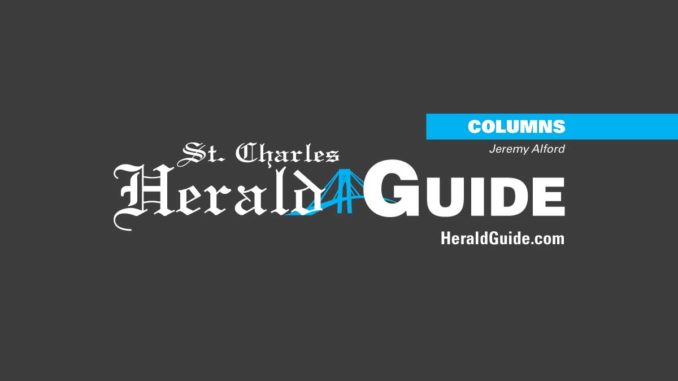
As the state grapples with mounting recovery expenses and looks to the federal government for financial assistance, economists are also expecting what could be a minor uptick in tax collections in the wake of the flooding in south Louisiana.
That spike in revenue, however, won’t be significant enough too address the immediate fiscal challenges being faced by the state. Future deficit are expected and $1.5 billion in tax revenue is set to expire in 2018.
Hurricane Katrina offers somewhat of a guide, although the August flooding will not produce near the same amount of recovery spending. After making landfall in late August, the Revenue Estimating Conference met in October to lower expectations for incoming cash for the state, only to see a spike in sales tax and income tax collections soon after. LSU economist and REC member Jim Richardson said the REC will gather next at it’s regularly-scheduled meeting some time in September, but he doesn’t see a need for a revision at this time.
“For Katrina, we didn’t know what the impact on business was going to be and we chose to be prudent,” Richardson said. Today economists in Louisiana know that a bounce in tax collections can be expected in the months following a major flooding event.
“By October or November you will see numbers moving up,” said Richardson, adding that collections should be back to normal by the summer of 2017.
As people start to buy new sheetrock, carpeting and vehicles, sales tax collections will start to increase. As recovery work picks up, so will income tax collections.
To what extent these collections will increase and fill the state’s coffers will depend largely upon public programs and state and federal assistance. Hurricane Katrina caused a major spike because more of the impacted population had flood insurance and access to federal money.
In comparison, the recent flooding will have a smaller footprint, due largely to the number of residents without flood insurance.
Some areas will bounce back sooner than others, Richardson said, like East Baton Rouge Parish.
“Overall what you will find is that East Baton Rouge will be back to normal fairly quickly,” he said. “You still have businesses functioning there and more are coming back online. You can look at Livingston Parish and see there is barely any commerce there. They’re going to have to go to Baton Rouge or somewhere else to start rebuilding and to get what they need.”
Mobile precincts possible in NovemberHurricane Katrina offers yet another model for what to do in terms of the upcoming elections.
The good news is that not a single voting machine was touched by floodwaters over the past week. The bad news is that some voting precincts have been badly damaged.
Secretary of State Tom Schedler is preparing for the possibility of using mobile voting precincts in November, similar to what was employed following the 2005 hurricane season.
That would allow voters to show up where they usually do, rather than having to find a relocated voting precinct. Tents from the National Guard will be set up in parking lots and equipped with generators and portable toilets.
But as of now Schedler’s office is still assessing the situation. Elections as homeland security?Before he traveled to Louisiana to survey the flood damage and work with Gov. John Bel Edwards recently, U.S. Homeland
Security Secretary Jeh Johnson was floating the idea of designating electronic voting machines as “critical infrastructure” as a way to combat potential cyberthreats.
After Democratic campaign systems were hacked, Johnson was asking whether voting systems should be on par with power grids, for example, in terms of protection.
Secretary of State Tom Schedler took part in a call to state officials around the country recently and asked Johnson if there was a credible threat. The answer was no, according to coverage in The Conservative Review.
Some election officials around the nation aren’t warming to this idea, worrying that they could lose some control to the federal government.
Plus, some election officials argue, most electronic voting machines aren’t connected to the internet. They are, instead, standalone machines. Attorneys added to coastal suit In the lawsuit filed by Jefferson Parish against several oil and gas companies, the state Department of Natural Resources has intervened and asked a judge to enroll a new team of attorneys to represent Louisiana’s interests.
The suit is seeking damages for coastal land loss dating back several years.
The state wants to bring on as its legal team former legislator Taylor Townsend; Gladstone Jones and Bernard Boudreaux of the Jones Swanson law firm; Michael Veron and Rock Palermo of the Veron Bice law firm; James. R. Swanson; and James M. Garner.
Some of these attorneys were involved in pushing a similar coastal lawsuit against oil and gas companies on behalf of a New Orleans east bank levee board, which was dismissed in federal court.
With carbon copy lawsuits pending in other coastal parishes, the lingering questions now include whether the same attorneys will be added to those cases and whether there will be an effort to merge the cases together.
Moreover, there will certainly be a growing interest in seeing the details of these legal contracts as the state struggles to pay for recovery-related expenses brought about by the recent flooding.
They Said It“We can’t walk into next year’s session cold turkey and expect anything but chaos.”— House Democratic Caucus Chair Gene Reynolds, on the need for policy preparation, in The Monroe News-Star


Be the first to comment